More and more, pool owners are purchasing heat pumps to heat their swimming pools. However, how do pool heat pumps work? Are they really that more efficient than the standard pool heater? Or, are they simply an alternative option to gas and solar heaters?
What Is a Heat Pump?
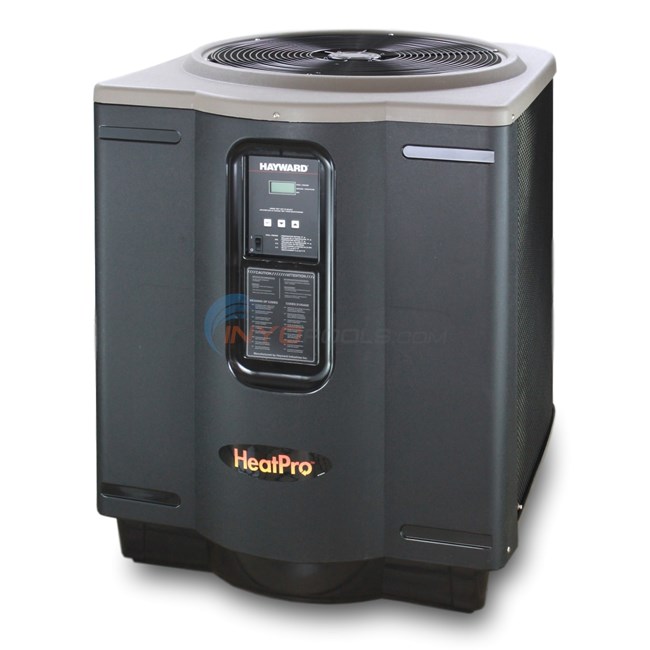 In short, a heat pump is a device that transfers heat from one area to another using mechanical energy. Unlike gas heaters, heat pumps do not actually generate heat. So, I bet you’re wondering where does the heat come from then?
In short, a heat pump is a device that transfers heat from one area to another using mechanical energy. Unlike gas heaters, heat pumps do not actually generate heat. So, I bet you’re wondering where does the heat come from then?
The heat actually comes from the outside temperature. Some people refer to this as “free heat.” Heat pumps use the heat from the outside temperature and convert it to a heating source. For pool owners, that means the only cost you have to worry about is to operate the compressor and the fan motor. This is what makes a heat pump more efficient than gas heating.
What makes a heat pump so efficient is also one of the main drawbacks of using a heat pump. Swimming pool heat pumps work efficiently as long as the outside temperature remains above the 45-50 degrees Fahrenheit range. Once the temperatures drop below that range, the heat pump becomes ineffective. So, if you purchase a heat pump with the intention of using it during the colder months, make sure that your average temperature remains above 50 degrees Fahrenheit.
How Do Heat Pumps Work… Exactly?
Sure, you know the basics of a heat pump. However, do you know exactly how heat pumps work?
- Once you start the heat pump, the fan pulls warm air over the evaporator coil. This heats the liquid refrigerant inside the heat pump and converts the liquid to gas.
- The warm gas enters the compressor, causing the temperature pressure of the gas to rise. During this point, temperatures can climb over 200 degrees Fahrenheit.
- Next, the hot gas refrigerant leaves the compressor and enters the condenser heat exchanger. The heat transfers to the pool water flowing through the heat pump.
- Finally, the warm liquid exits through the expansion valve. As the pressure drops, it rapidly expands and becomes cold liquid again. This liquid flows back into the evaporator, where it begins the cycle again.
Heat Pump and Chiller Combinations
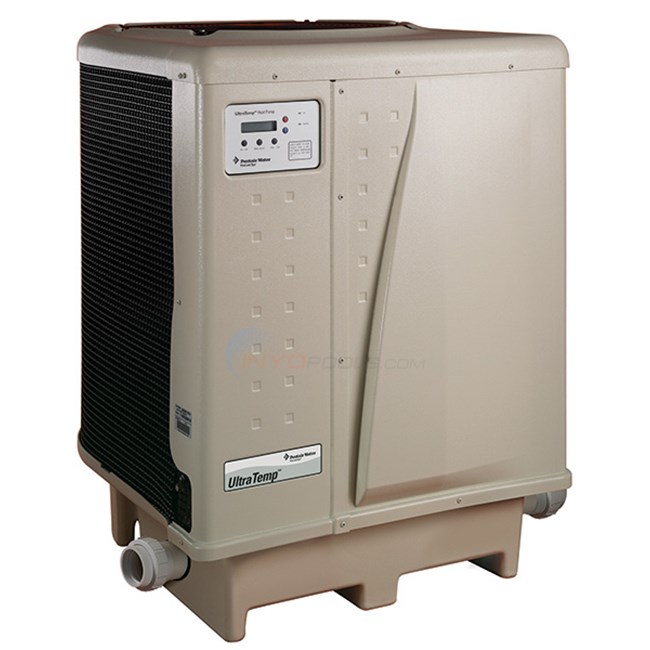 Like gas heaters, heat pumps are “heat- only” devices that only heat your pool. However, there are some units that are reversible, in other words, the unit can provide both heating and cooling.
Like gas heaters, heat pumps are “heat- only” devices that only heat your pool. However, there are some units that are reversible, in other words, the unit can provide both heating and cooling.
Meanwhile, there are some units that merely chill your pool. As of right now, most pools have heat-only devices. However, we are seeing more and more families invest in heat/chill combinations.
A pool chiller operates similarly to an air conditioner. As your pool pump sends water through the chiller, airflow within the unit removes the heat from the water. This happens almost instantly. The chilled water is then sent back to your pool.
One of the main reasons chillers are becoming more popular is because the weather is hotter. Heat pumps that heat and chill refresh you during the hot summer months and warms you up during the cooler months.
Articles Related to Heat Pumps
If you’re in the process of purchasing a pool heater, you may have other questions and concerns before finalizing the sale. Below is a list of additional resources that we think will help your process.
How Long Does it Take to Heat a Pool?
PSC Ep. 83: Should I run my heat pump during the day or at night?




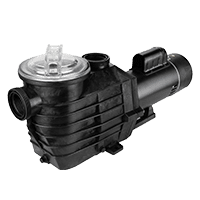
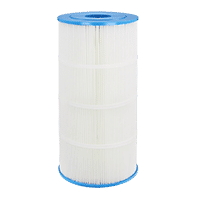
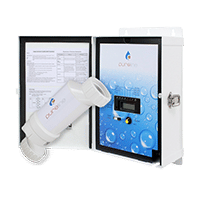
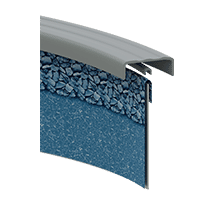
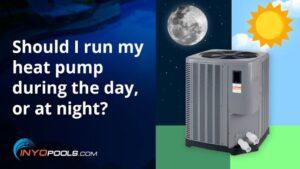

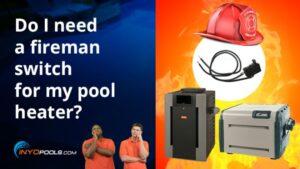
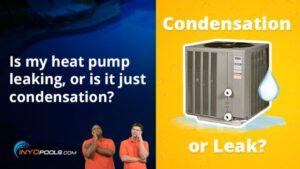
Leave a Reply